
5 HARDEST DEGREES TO GET IN COLLEGE YouTube
What should I study? Take our 2 minute quiz to find the right course for you. Open Universities Australia is a not-for-profit dedicated to helping every Australian access higher education. Open Universities Australia acknowledges the Traditional Owners of Country throughout Australia. We pay our respects to Elders past and present.
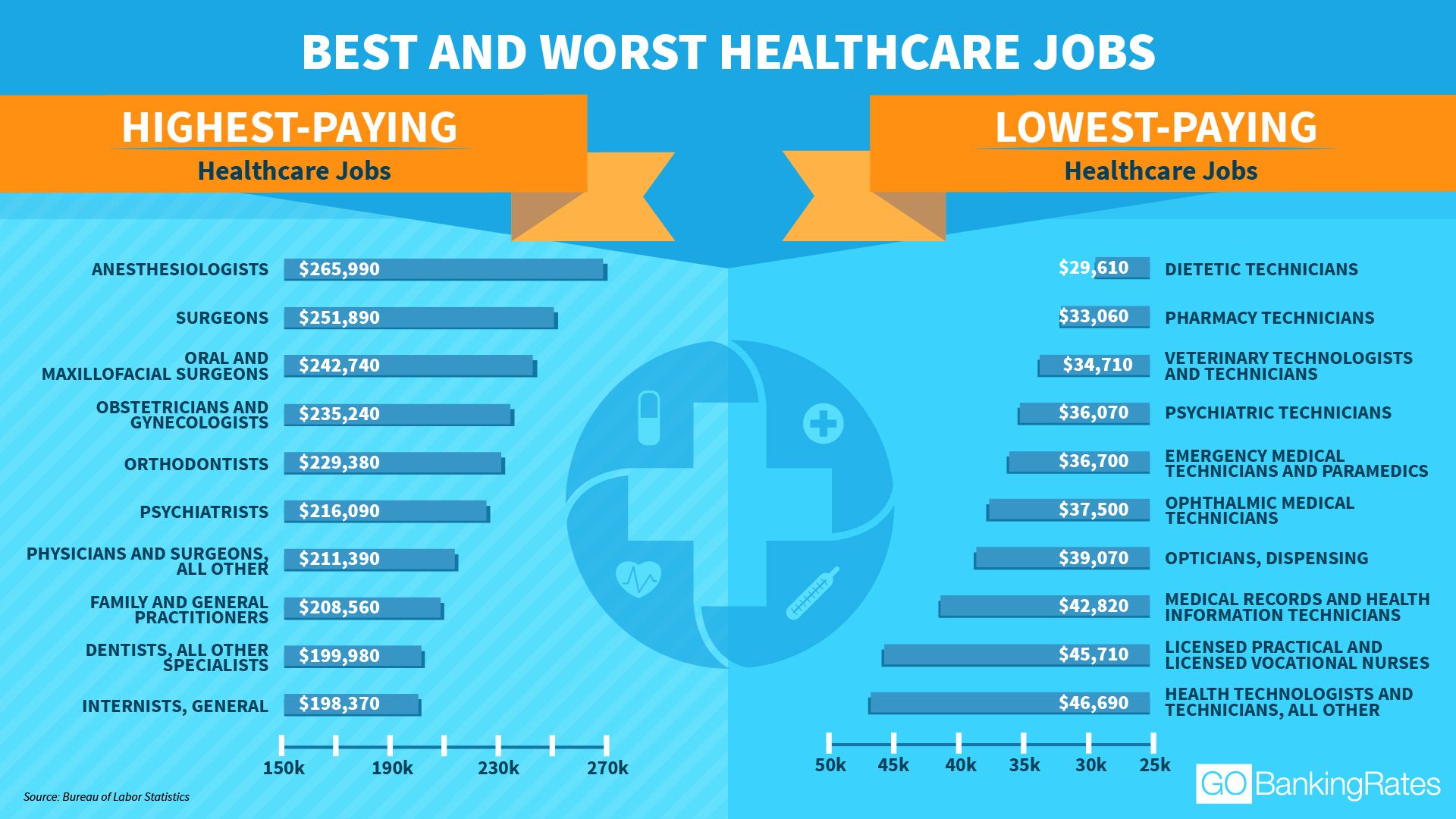
What is a easy degree that pays well?
It is one of the only medical degrees that does not require you to pass the GAMSAT for admission. The degree typically lasts 5-7 years but its one of the most employable degrees in Australia. #6 Teacher Education Percentage of graduates with a full-time job: 86.7% Example Degrees: Bachelor of Education (Primary) (ACU, MQ, WSU, UQ)

What Is the Easiest Degrees to Get Online in 2024?
CollegeVine's Top Easiest Majors We have put together our list of top easiest majors based on three factors: GPA, weekly study hours, and return on investment. Keep in mind that your factors may be different! Read our brief summary of each major to see if it may be a good fit for you. 9. English Average GPA: 3.2. Average Weekly Study Hours: 16

What Is The Easiest Engineering Degree GSA
According to average GPAs, these are the 10 easiest bachelor degrees. Click on one to jump to that section. Criminal Justice. English Literature. Liberal Arts. Management & Leadership. Marketing & Communications. Ministry.

The Easiest Bachelor Degree To Get Easiest Engineering Degrees YouTube
Easiest Engineering Majors. 1. Environmental Engineering. Environmental engineers are focused on developing machines and structures that will cause minimal harm to the environment. At the intersection of environmental science and engineering fundamentals, environmental engineering is certainly not an easy major.
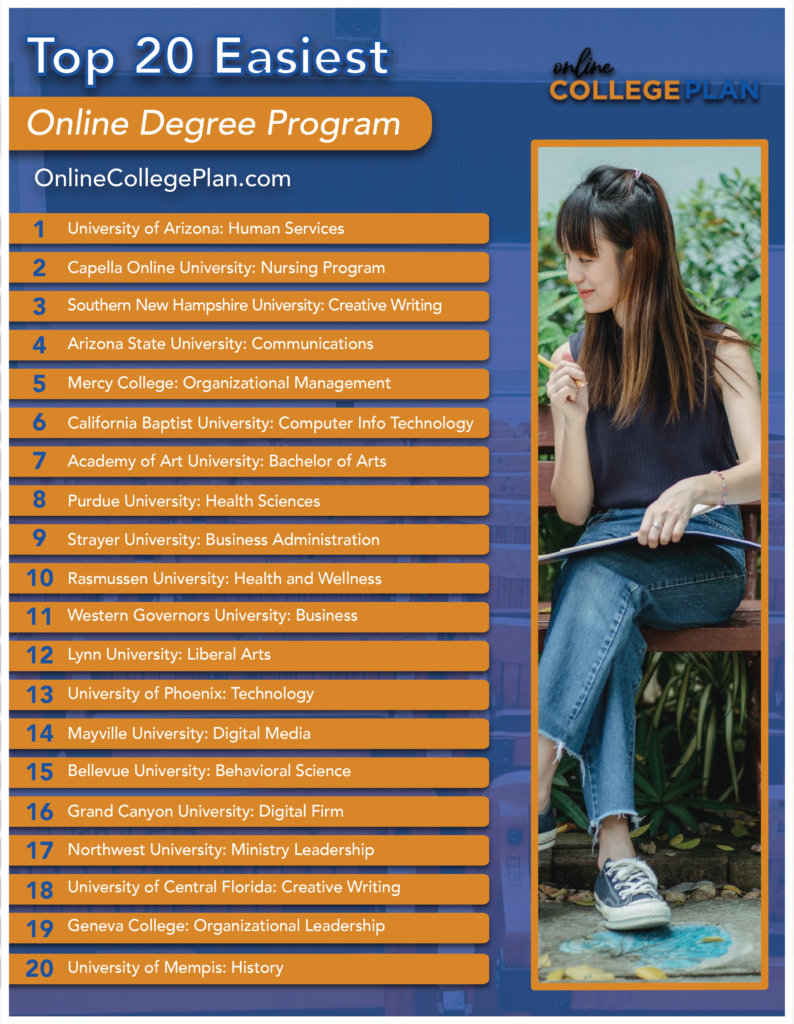
Top 20 Easiest Online Degree Programs Online College Plan
There are two ways to fast track your studies through Open Universities Australia. On-campus students. Online learners. Continue your existing on-campus degree while picking up a few extra online subjects through Open Universities Australia, increasing your study load. Just make sure the subjects you choose are related to your current course.

What is the Easiest Degree to Get? Diploma Makers
The 16 Easiest College Majors - 2024 Rankings. Here are the 16 Easiest College Majors for 2024: Psychology. Criminal Justice. English. Education. Religious Studies. Social Work.

What is the easiest degree to get that pays the most? YouTube
Vocational degrees like nursing, teaching, engineering and architecture are grounded in practical skills. They are often the first step to becoming accredited in a profession. Generalist degrees like arts and sciences offer you the opportunity to pursue your interests in a much broader way. They allow you to balance subjects that give you the.
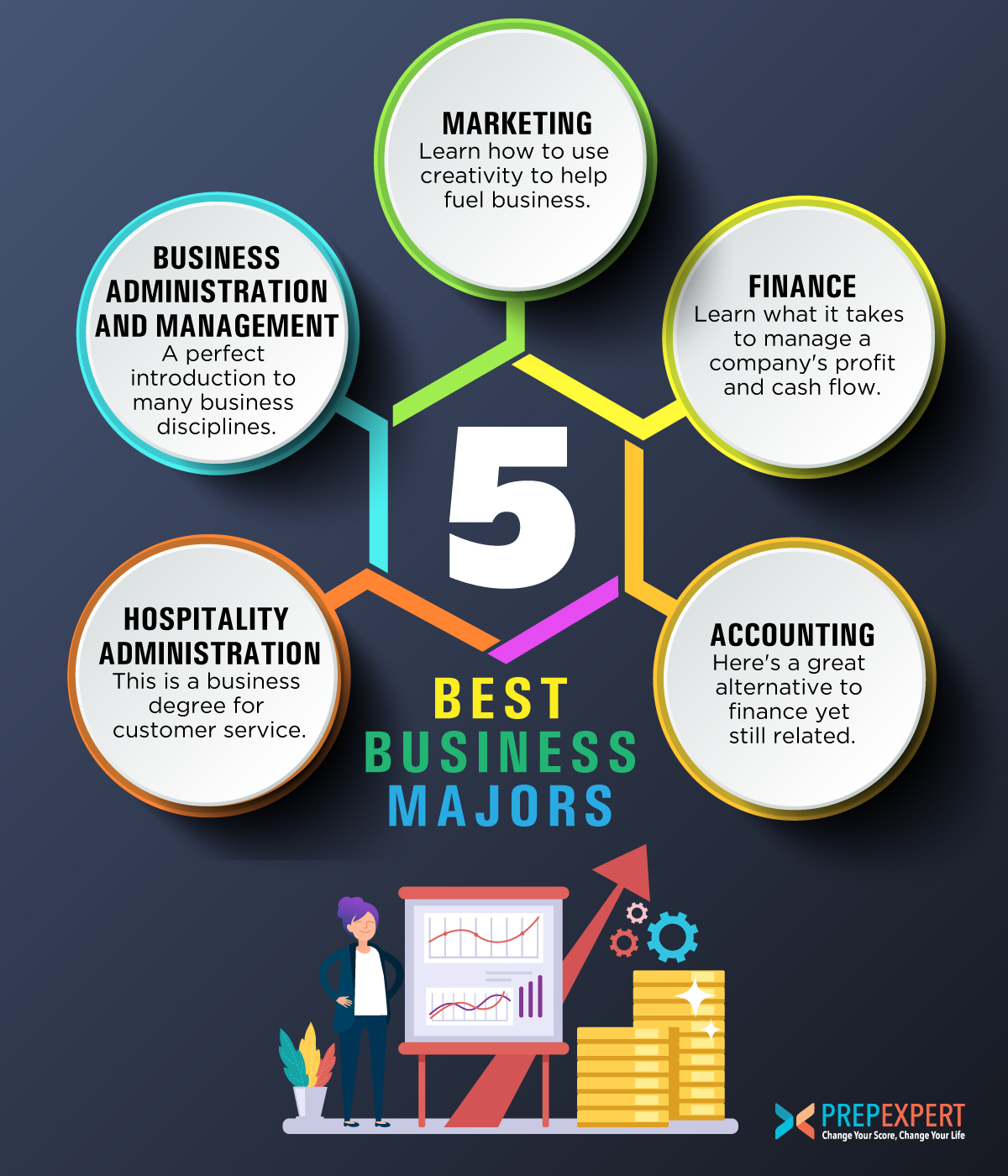
What Is The Best Business Degree To Get 2019 businesser
12. Sports Management. Sports management has a lot of similarities and overlapping coursework with business administration. You will learn about public relations, sports, and the human body. The major positions graduates to work in management, PR, or as part of professional sports teams. 13.
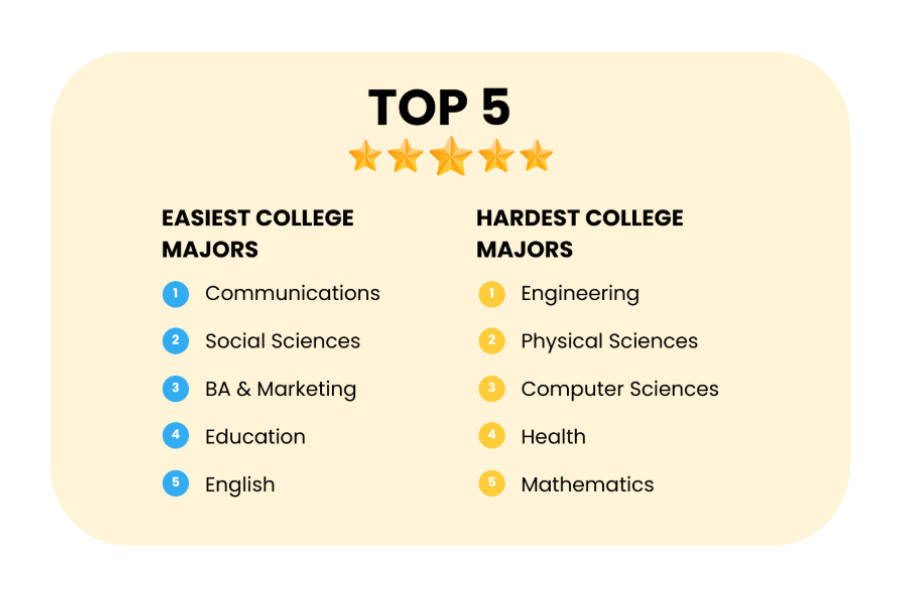
Top 10 Hardest and Easiest College Majors in the Country
3. Communications. Learning how to communicate effectively is a valuable skill that applies to countless jobs. A bachelor's in communications consistently ranks among the easiest college majors, and you'll tackle classes such as public speaking, introduction to communication theory, and organizational communication.

The Easiest way to get a Degree നിസ്സാരമായി ഇനി ഡിഗ്രി കിട്ടും
However, it will require you to do some free work as a student teacher at the beginning of your career. After student teaching, you can expect to earn an average of $45,000 - $55,000 annually. The top 10 percent of education majors make over $93,000 per year. 4. Anthropology.

15 Easiest Bachelor Degrees to get Online 2022
Percentage with Graduate Degree: 24.2%; Related: Best Colleges for Communications. 4) Criminal Justice. Although typically considered to be one of the easiest college majors, criminal justice majors often have their sights set on difficult career paths in police work or corrections.

Easy College Degrees What's The Easiest Way To Get Your Degree
2. Communications. As a communications major, you'll study mass media, public relations, and journalism. It's a popular major that's also one of the easiest bachelor's degrees. After graduation, you can work in the growing media and communications field. These jobs report a median annual wage of $66,240 (BLS, May 2022).

13 Easiest Degrees To Get A Job With 2023
As a psychology major, you'll learn a number of useful skills, like analysis and communication. As an undergraduate studying psychology, you'll take some entry-level courses of statistics and analysis. The more difficult coursework comes later, if you choose to pursue an advanced degree. Psychology majors earn a median salary of $57,000.

What Is The Easiest Degree To Get Online? (Top 8, FAQs)
EASIEST MASTER'S DEGREES. Liberal Studies: MA in Liberal Studies is a professional degree that is achieved through participation in an interdisciplinary program that broadens one's knowledge of Liberal Arts. During the time that students spend earning their MA in Liberal Studies, they receive instruction in an array of fields including history, writing, philosophy, psychology, creative art.
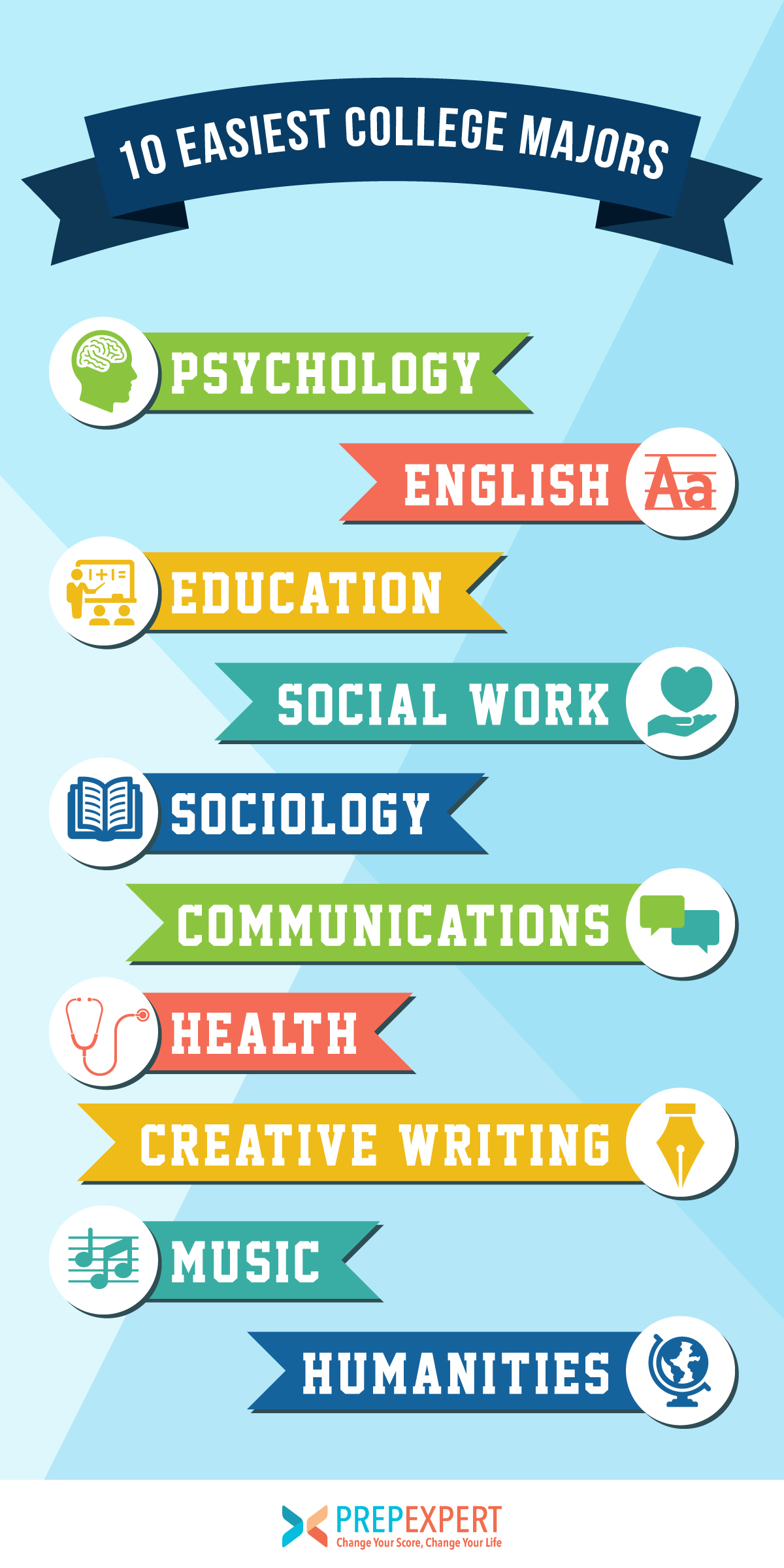
What is the easiest major in college?
For liberal arts, the main requirements are usually a cavalcade of various courses in English, World History, World Languages, Writing, and other humanities disciplines. It's the sheer breadth of options that might just make liberal arts the easiest degree to get online.